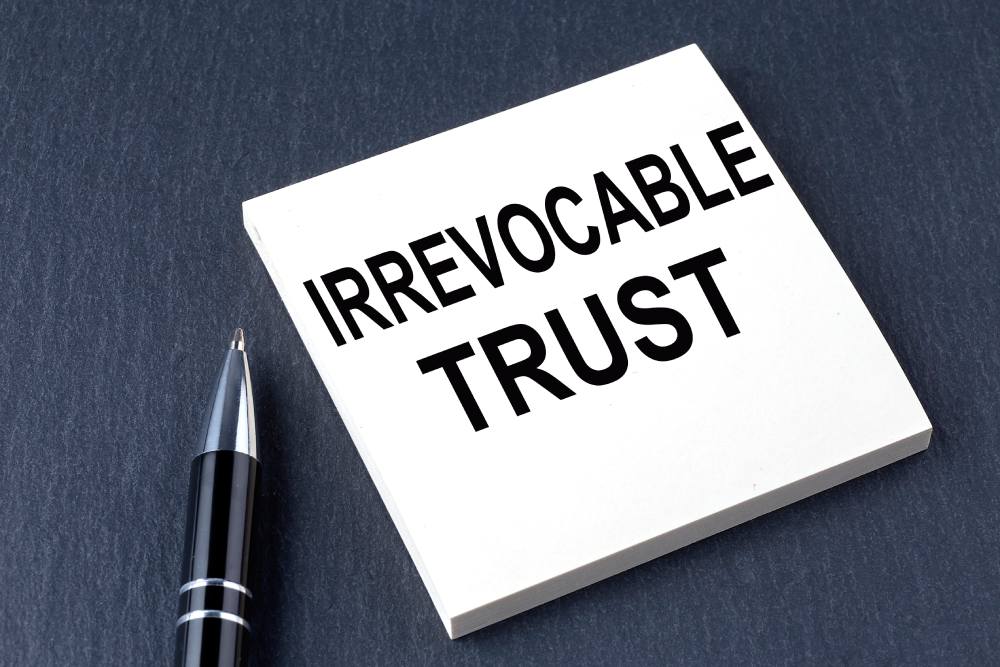Owning a home inside an irrevocable trust changes how you can move or sell that property. When someone asks about selling a house in an irrevocable trust before death, the answer depends on how the trust was written and who acts. This article explains how the process works, what obstacles might arise, and the necessary steps to execute a valid sale.
How Ownership Works in an Irrevocable Trust
Once the property transfers into an irrevocable trust, the legal owner is the trustee under the trust terms. The grantor gives up personal title; the trustee holds it. Trust documents typically grant the trustee the authority to sell or transfer the property under specified conditions.
If the trust grants this power, the trustee may proceed with the sale. If not, modifications, beneficiary approval, or even court intervention may be required. The grantor no longer has the authority to act as the legal owner. The sale cannot proceed as if the grantor holds personal title.
The chain of title must list the trustee or the trust as the seller, and title companies and buyers will typically require proof of the trustee’s authority. A certification of trust or a trustee’s deed may be necessary to validate the trustee’s authority to sell.
When the Trustee Can Sell
The trust document will specify whether the trustee has the authority to sell the house before death. If the trust grants broad discretionary powers, the trustee can sell the property in accordance with those rules.
The trust may, however, limit sales to specific circumstances or require beneficiary approval. If all parties involved agree, the trustee can proceed within the boundaries set by the trust. The trustee must adhere to conditions such as making sure the property is sold at fair market value, providing required notices, and documenting the transaction.
If the trust lacks clear provisions for the sale of the property, the trustee may need to petition the court for permission, especially if factors such as property maintenance, taxes, or risks make holding the asset impractical. The court will evaluate whether the proposed sale aligns with the trust’s purposes and whether it benefits the interests of the beneficiaries.
How Title, Deeds, and Buyer Demands Matter
When a house in trust sells, buyer and title firms require documentation showing that the trustee has authority and that the trust allows the sale. They will ask for a trust certificate, trustee declaration, or a copy of relevant trust provisions. The trustee must sign the deed conveying the property. Incomplete or unclear documentation can stall or derail the sale.
If the title search reveals defects, the trustee must clear them before or during closing. Recording rules for deeds vary by state. The trustee must comply with local recording, tax stamps, and transfer fees. The buyer expects a clean title in the trustee’s name. If liens or encumbrances exist, the trustee must address them. That may involve paying off mortgages or satisfying claims before the sale proceeds move forward.
Tax Consequences of Selling Before Death
Selling property while the trust is active triggers capital gains liability. The trust or beneficiaries may bear that tax burden, depending on how the trust is taxed.
If the trust is structured as a grantor trust, the grantor may report the gain and pay tax personally. If it is a non-grantor trust, the trust itself pays tax on gains it retains, while distributed gains go to beneficiaries. The trust must adjust its basis, account for improvements, and allocate gains properly.
Selling before death also forfeits the stepped-up basis that would apply upon the grantor’s death, which could result in a higher taxable gain due to the retention of the property’s original cost basis. State tax rules may further complicate the sale and may impose additional taxes. The trustee should carefully plan the tax consequences before proceeding with the sale.
Risks and Limitations
If the trustee acts without proper authority, the sale may be voided by the courts, and the trustee could face liability. Beneficiaries might challenge the transaction if they believe the sale breaches the fiduciary duty owed to them.
If the grantor attempts to exert undue influence over the trustee, a court could declare the trust invalid, nullifying the transaction. The trustee must maintain arm’s-length transactions and document all decisions and actions related to the sale.
The timing of the sale is also important. If the market conditions are unfavorable, selling too soon might lead to a loss in value. Additionally, if the grantor is incapacitated or near death, there may be conflicts among the beneficiaries, some of whom may want to retain the property, while others may prefer a sale for liquidity. The trustee must carefully balance fairness to all parties and adhere to the trust’s objectives.
When Sale After Grantor’s Death Becomes Easier
Once the grantor passes, the trust often becomes irrevocable if it was revocable before. The trustee has authority pursuant to trust terms and with less resistance. The trustee may sell more freely, especially if the will or trust instructions allow.
Beneficiaries typically expect distribution or sale under trust rules. The tax basis of property often steps up at death, reducing capital gains when the sale occurs soon afterward. That makes the post-death sale more favorable in many cases.
Steps to Decide before Sale
First, examine the trust itself. Read the clause granting or limiting sale authority. Next, review the title chain and any encumbrances. Then assess tax impact: basis, gain, state tax issues. Check to see if the beneficiaries agree or oppose the sale.
If consent is required, get it formally. If the authority is missing, prepare petition or amendment steps. Finally, prepare the documentation certificate of trust, trustee deed, and disclosure for the buyer and title company.
When a Sale May Not Be Wise
A sale might not be advisable if the tax burden is too high or if the property holds significant sentimental or long-term value. If retaining the property better aligns with the beneficiaries’ goals, selling it may not be in their best interest.
Furthermore, if the trust was structured to take advantage of a low-tax environment after the grantor’s death, selling the property before that time could forfeit these benefits.
If there are sharp disagreements among the beneficiaries regarding the sale, this could lead to litigation, further complicating the process. The trustee must weigh all of these factors before proceeding with the sale.
At Nevada Trust Company, we review the trust documents, advise on sale authority, assist with court petitions if needed, and prepare necessary instruments for title and tax work. We help analyze tax outcomes, balance beneficiary interests, and structure proposals that meet trust objectives. Our team works where Nevada’s trust laws support flexibility, protection, and clarity in transactions.
If you are considering selling a house in an irrevocable trust before death, you are welcome to contact us for help, a tailored review, and next steps.



